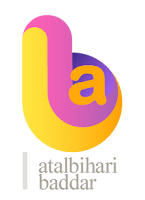E-Schooling during COVID19 lockdowns, beginning of a digital journey for the teaching community in India
The digital lingo and related ecosystem didn’t existed in many Indian schools & households till April 2020. In recent years few schools took small steps towards Digital Transformation by collecting online admission forms, online payments, using online modules like Google Classrooms to send homework, requesting PPTs from students on occasions to name a few.
The primary schooling function in India is offline as the country lacks infrastructure to support the digital transformation process across Schools, Teachers, Parents and Students. The infrastructure deficiency includes technology savvy teachers, robust internet connectivity, and availability of devices with teachers and students, professional apps and sites as an example.
From April 2020, as concept of online learning being prominent and unavoidable, all schools across the country have been scheduling classes on a daily basis. All started with swift actions like providing feedback forms to parents to conducting weekly reviews, the schooling institutions are now working on regulations to ensure that teachers receive feedback on these changes.
Centre for Teacher Accreditation (CENTA) in April shared a survey which discovered that while the number of teachers taking to online teaching had tripled over the last three months, many teachers had shared that as online medium is very new in terms of teaching as well as learning, they would like to focus more on their ability to engage students with new methods and assess their understanding, and adjust their teaching methods accordingly.
Many schools have implemented a system where the teachers brief the senior coordinators of their department the day before a class. The teachers are expected to outline what they will be teaching the next day and how they intend to progress with their curriculum.
School coordinators want to ensure that teachers are comfortable with the technical aspects of handling online classes, and in parallel need to monitor their speed of teaching, effectiveness and ability to connect with the class.
The digital learning process is being implemented, reviewed and corrected by involving Students attending online classes and are given feedback forms at the end of each session to record their views on the class and suggest improvements. Many students from the higher classes have started sharing interesting online resources related to their subjects which are beneficial for the entire class.
For live as well as pre-recorded online lessons delivered by teachers, there are several aspects that need to be reviewed by schools and experts in education field. This involves checking whether the teacher’s engagement with students, the way they sound, handle one on one correspondence and even the background against which they sit and teach from home or the display picture, attire used during classes apart from reviewing whether the lesson plan and content in place.
The digital schooling has changed the ways teacher’s being reviewed by school authorities. As part of the live online lessons being conducted by the school, the principal, the vice-principal and the coordinators are taking turns in attending the online classes to see the effectiveness and interaction between students and teachers.
Apart from schools, the central and state governments also have started taking steps in ramping up facilities to support e-schooling.
The Government of India has started many initiatives to reduce the disparity in Indian education system in delivering seamless education. Through programmes such as SWAYAM (Study Webs of Active Learning for Young Aspiring Minds), it has been broadcasting various teaching courses to learners via Doordarshan and All India Radio channels that may be accessible to a larger audience.
In many states
like Maharashtra and TamilNadu, local authorities have been asked to work on
creating easily accessible WiFi facilities in different parts of cities and
towns. They have also been ordered to explore if pre-loaded data cards, tablets
can be given to students as part of the pilot project on online learning. Help
of private DTH TV brands can also be sought in sharing content, academic
calendar and curriculum.
The
governments even have suggested schools to begin online admissions through
Google forms, conduct online meetings with the school management committee,
ensure textbook distribution, create e-content etc.
All said and done, this is an effective starting journey for the teaching community in India. Since it has been a big transition for most of the teachers, which are facing several challenges from infrastructure, tools to training, the next step from institutions should be to provide tools, confidence and support.


Comments
Post a Comment